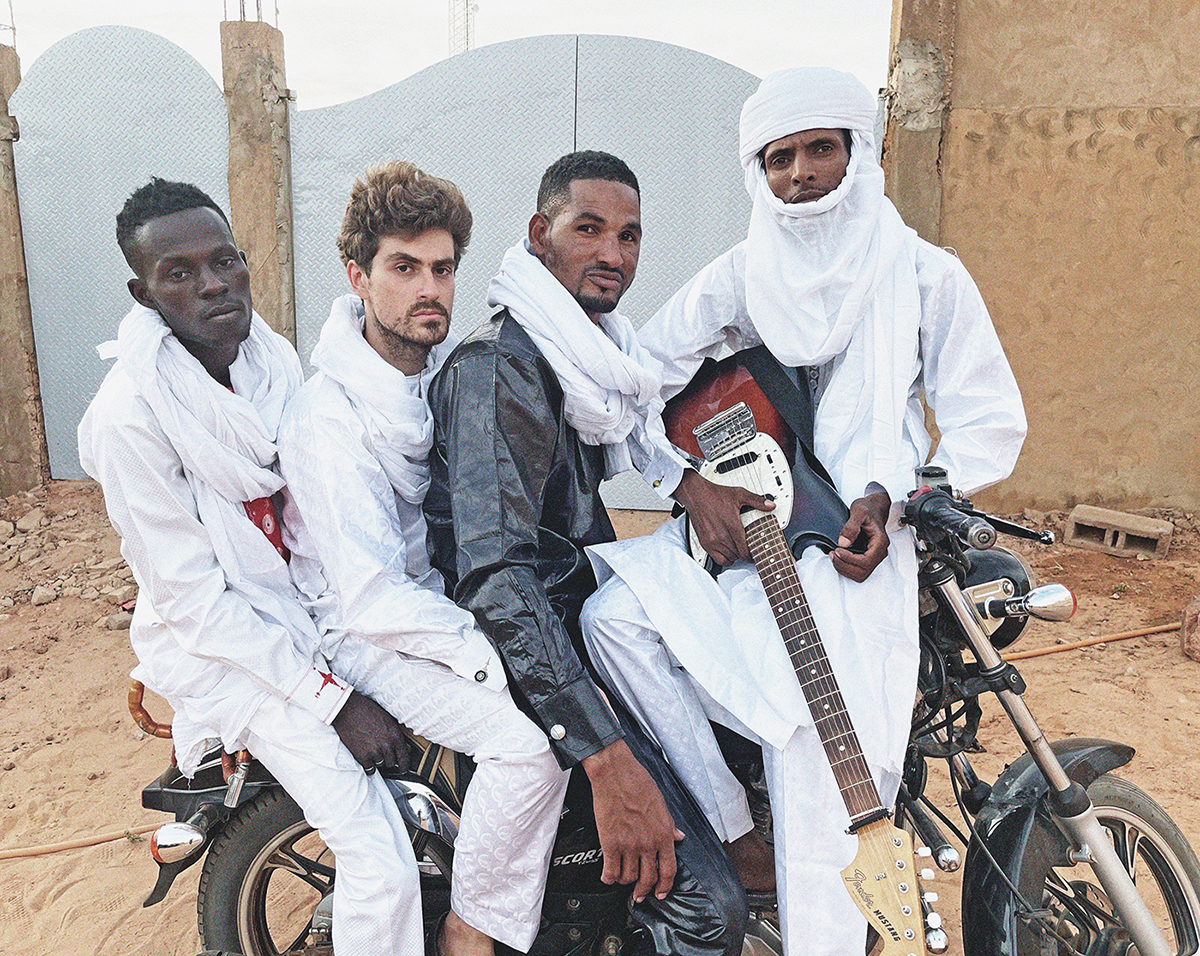Spotlight: Mdou Moctar

The odds of Mdou Moctar becoming a psych-rock icon were impossibly small. The guitarist hails from Agadez, Niger, a rural city located in the Sahara desert—and he only broke through internationally after Christopher Kirkley, a label owner from Portland, Ore. happened to discover his music via Bluetooth during a trip to West Africa.
Then there’s the matter of playing the guitar: Years before he was swapping riffs with Dweezil Zappa on YouTube, the aspiring songwriter had to build his own axe from wood and bicycle wire. Looking back, though, Moctar is practical about all of this—he simply did what he needed to in order to turn his dream into a reality.
“I wanted to be an artist, and I needed a solution to be an artist,” he says. “I didn’t have a guitar, but I built my own guitar, just because I’m looking for the solution.”
Moctar needed that drive to fuel his slow-build career. His first LP, 2008’s Anar, showcased an electronic atmosphere that was heavy on wild Auto-Tune; it wasn’t until albums like 2015’s Akounak Tedalat Taha Tazoughai and 2019’s Ilana (The Creator) that his now signature style, a dizzying form of the Tuareg tishoumaren (or “desert blues”), started to really flourish. His Matador debut, Afrique Victime, is the apex of his catalog: a more dynamic work that veers from frenzied guitar workouts (“Chismiten”) to acoustic-and-electronic meditations (“Ya Habibti”).
Afrique Victime was assembled with his regular live band, including New York-based musician Mikey Coltun. The bassist-producer’s presence was pivotal on the new album, tracked throughout 2019 in various spots: studios, backstage areas, hotel rooms and apartments, adding a messiness that bleeds into the music itself.
And Moctar, stifled by the more extended studio visits he had to endure while working on his previous record, was inspired by this anything-goes mentality. “In the studio [for Ilana], it was something very specific,” he says, before mouthing a click track. “I don’t like that a lot. I like to play live in the studio. It’s natural for me. I like to play free.”
As Coltun notes, this is dance music. “We don’t like it when people sit down,” he says of their live show. “This music is played at weddings in Niger. The more energy the performers give, the more the crowd gives back. It kinda feeds off each other, and the performers get paid more.”
“If the crowd just watches me play, I can’t do nothing,” Moctar adds. “But when everyone dances and claps, my energy is gonna come and everything is gonna be great. It’s what I am.”



















